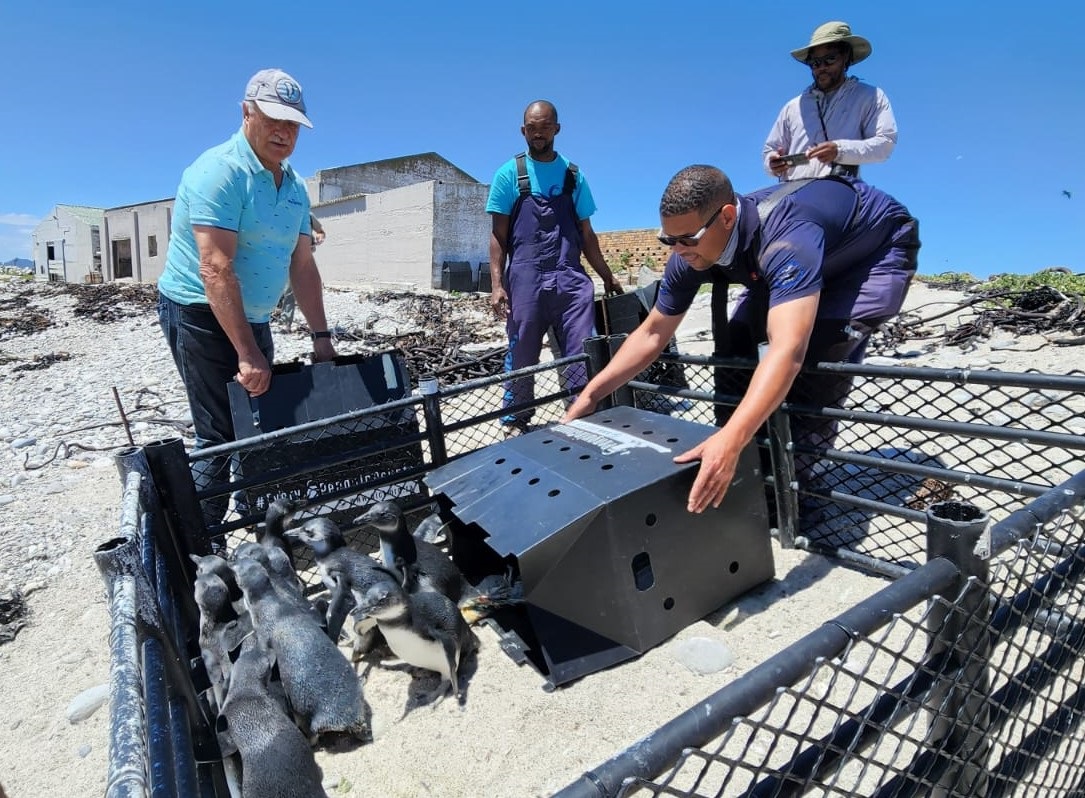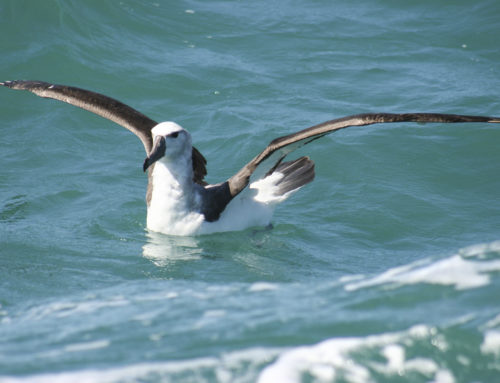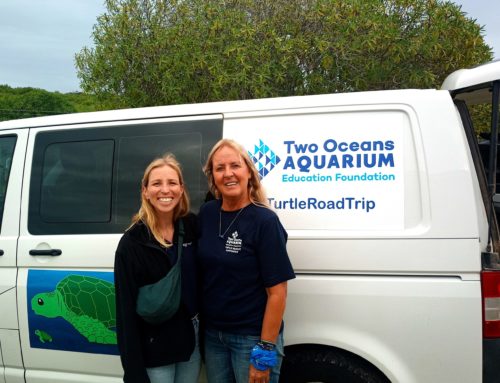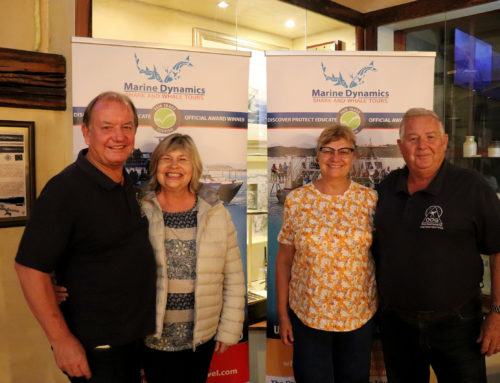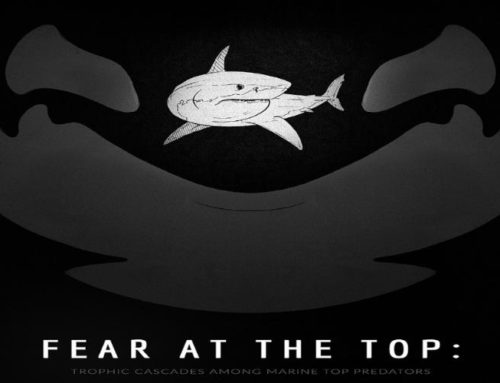The African Penguin and Seabird Sanctuary have returned another 16 African penguins to their home on Dyer Island this weekend. The first batch of 41 young African penguins was released on the island, last week Saturday 19 November.
A total of 120 chicks were removed since the beginning of November and hand-raised at the African Penguin & Seabird Sanctuary (APSS), a project of the Dyer Island Conservation Trust. The removal of compromised and orphaned chicks is one of the actions to try to stabilise the declining African penguin population and is part of the African Penguin Biodiversity Management Plan of the Department of Forestry, Fisheries and Environment. Over the last 30 years (three generations), the number of African penguins breeding in South Africa has declined by 73% from ~42,500 breeding pairs in 1991 to ~10,400 pairs in 2021 (Sherley et al. 2021).
The chicks are removed at the end of the breeding season, when the adults go through their annual moult. Due to a variety of circumstances, some parents start their moult before their offspring have reached the fledgling stage. These chicks will either starve to death on the island or venture into the ocean without the required amount of fat reserves to allow them to survive the challenges of the wild. Since the first chicks were removed from Dyer Island beginning in November, the African Penguin and Seabird Sanctuary staff have been working non-stop, 7 days a week, for the past month.
The increased “baby boom” of African penguin beaks to feed, has added a big financial burden on the already stressed budget of the APSS. “We are deeply grateful for all the support we have received from private donors, as well as those who visit our coffee and curio shop at the penguin sanctuary as all profits remain dedicated to our conservation efforts, “says Xolani Lawo, Senior Bird Rehabilitator at the Sanctuary. “These little fluffy ones are also particular about their fish, it has to be fresh, fatty, and of the best quality. We order our sardines from a specific supplier in Hermanus, which seems to please the African penguin pallet!
“The African penguin population needs all the help they can get to prevent this species from becoming extinct in the wild. We celebrate the release of another 16 African penguin fledglings back into the big blue,” said DICT Conservation Manager Trudi Malan. “This is the second group of birds that have reached the target weight of 2.8kg and can now be returned to the island. The remaining penguins will hopefully be released early in the new year.
Dyer Island is classified as an Important Bird Area (IBA) and under the protective management of CapeNature. An avian influenza outbreak amongst wild birds is devastating as there is no cure or intervention to treat affected birds. CapeNature followed the best course of action which is to lower the viral load by removing sick birds and carcasses from the environment. As of 26 December, the count was 15 221 deceased seabirds on the island.
CEO of the Dyer Island Conservation Trust, Wilfred Chivell added, “The rescue, rehabilitation, and release of these birds are but a small step in the actions required to arrest the decline of this species. Our penguins face many threats and active interventions like the limited closure for fishing around the island during certain times of the year should be implemented as soon as possible.”
Please support the African Penguin and Seabird Sanctuary by buying your Christmas gifts at the gift shop, or making a donation to help us feed these precious babies!
